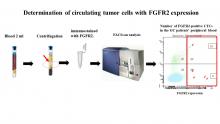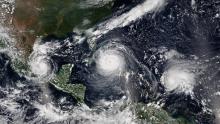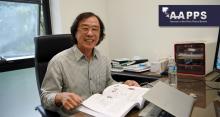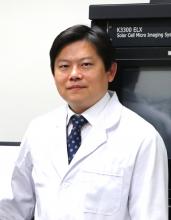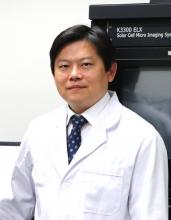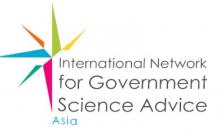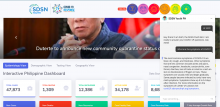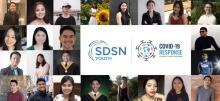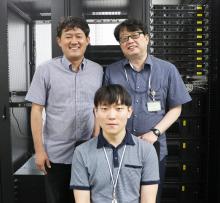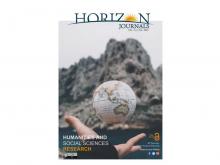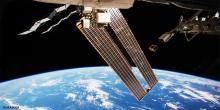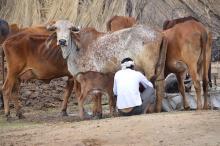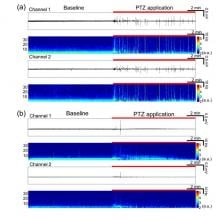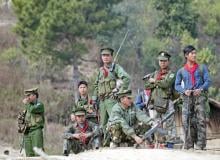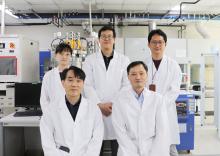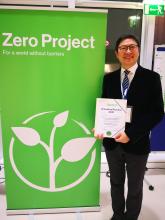Announcement
News
13 Oct 2020
The trick to extremely thin supercapacitors with improved performance is spraying graphene ink at an angle.

08 Oct 2020
Separate partnership with National Supercomputing Centre to enable Singapore Polytechnic’s staff and students to develop AI innovations for local industries
05 Oct 2020
ITE to leverage the power of high performance computing (HPC) for use in applied AI projects, workshops and training, and HPC-related student competitions in ITE-NSCC Singapore collaboration.
21 Sep 2020
Looking for experts who can comment on natural disasters when they occur, or disaster planning and research? We have compiled a list of experts from across Asia prepared to speak with journalists on a wide range of disaster types and issues.
17 Sep 2020
This year’s ADB-Asian Think Tank Development Forum will provide a venue to share ideas and experiences among affiliated scholars on the policies and strategies that countries should pursue to mitigate the big slump in the tourism industry. Deadline 30 September 2020.
16 Sep 2020
Professor Hyeon K. Park, affiliated with South Korea's Ulsan National Institute of Science and Technology (UNIST) has been selected, as the 7th Laureate of S. Chandrasekhar Prize of Plasma Physics.
14 Sep 2020
Scientists at Daegu Gyeongbuk Institute of Science and Technology, Korea, show that it is possible to distinguish between left-handed and right-handed people by noninvasively monitoring just their brain activity during passive tactile stimulation. These results are key in haptic research (the study of sensory systems) and have various important implications for brain–computer interfaces, augmented reality, and even artificial intelligence.
09 Sep 2020
Scientists at Daegu Gyeongbuk Institute of Science and Technology, Korea, develop a novel “heterostructured” photocatalyst using titanium and copper, two abundant and relatively inexpensive metals. Their cost-effective synthesis procedure, coupled with the high stability of the photocatalyst, provides an economically feasible way to convert waste carbon dioxide and water into useful hydrocarbon fuels using endless sunlight.
04 Sep 2020
Scientists at Daegu Gyeongbuk Institute of Science and Technology (DGIST) in Korea have found a way to improve the efficiency of betavoltaic devices, a type of power source that uses an internal radioactive material. This study opens up a new horizon in the field of nuclear batteries for powering set-and-forget electronic devices.
26 Aug 2020
Duke-NUS, the only graduate-entry medical school in Singapore, has joined the TriNetX global research network to increase clinical trial adoption and to facilitate better collaboration with other global healthcare organizations (HCOs). This latest member for TriNetX in Asia will provide the network with access to de-identified data from more than a million patients.
25 Aug 2020
A research team led by Prof Jeongho Kwak from Daegu Gyeongbuk Institute of Science and Technology (DGIST) has designed a novel system architecture where collaboration between cloud service providers and mobile network operators plays a central role. Such a collaborative architecture would allow for optimizing the use of network, computing, and storage resources, thereby unlocking the potential of various novel services and applications.
20 Aug 2020
The ever-increasing workload of data centers calls for new ways to store and access data. Researchers from the Daegu Gyeongbuk Institute of Science and Technology, Korea, have developed a new approach to manage databases in solid state drives, providing marked performance improvements in read/write delays and offloading database computation tasks from CPUs to increase efficiency and reduce power consumption.
17 Aug 2020
Duke-NUS spinout, PairX, led by US and Singapore scientists and investors, to advance immunotherapy biotech exclusively licensed from Duke-NUS.
11 Aug 2020
Scientists from the Daegu Gyeongbuk Institute of Science and Technology, Republic of Korea, discover a new way to diagnose Alzheimer’s disease by analyzing the levels of specific proteins in nasal discharge. This simple and inexpensive method could help in timely diagnosis of Alzheimer’s disease, in order to start treatment as soon as possible, thus delaying disease progression.
22 Jul 2020
– Human dosing of LUNAR-COV19 expected soon.
– Differentiated STARR™ mRNA vaccine expected to produce humoral and cellular immunity at very low doses.
– New preclinical data demonstrates neutralising antibody titres continue to increase for 50 days after a single administration.
21 Jul 2020
The International Network for Government Science Advice Asia is organising an essay contest on “How
is science advice used for the government in your country?”. The deadline is 31st of August 2020.
16 Jul 2020
IBM teams up with UN SDSN Youth Philippines to deliver a highly trained artificial intelligence chatbot on COVID-19.
16 Jul 2020
Filipino youth organization, UN SDSN Youth – Philippines, is paving the way for accessible information on the current pandemic.
13 Jul 2020
Acute kidney injuries can sometimes trigger the deterioration of small blood vessels and capillaries, leading to chronic kidney disease. But, this process is not completely understood. Now, for the first time, researchers from Daegu Gyeongbuk Institute of Science and Technology, Korea, in collaboration with teams from the University of Pittsburgh and University of Pittsburgh Medical Center, USA, have successfully used ultrasound super-resolution (USR) imaging to observe this process in live mice, revealing the promise of USR as a powerful diagnostic and research tool, and enhancing understanding of the disease.
09 Jul 2020
Scientists in Korea explain a new process that maximizes photon conversion in 2D materials, which could innovate photonic-based applications
07 Jul 2020
The JUL 2020 regular issue of the Journal of Humanities & Social Sciences Research (JHSSR), Volume 2 (1) JUL. 2020 has been published ahead of time on 30 Jun 2020 and is now live at the Journal’s webpage.
06 Jul 2020
Hokkaido University, Tohoku University, and Myanmar Aerospace Engineering University (MAEU) have started their first satellite development program from September 1st, 2019.
30 Jun 2020
- 2020 competition sees 30 student teams from institutions around the region competing in a showcase of mastery in state-of-the-art high-performance computing and artificial intelligence
- This year’s competition includes ‘real-world’ scenarios including two new challenges to support COVID-19 research
30 Jun 2020
Hiroshima University scientists will work on a low-cost sex selection system for bovines using their new technology to help grow dairy herds and boost the incomes of India’s smallholder farmers.
29 Jun 2020
Novel system for simultaneously measuring brain electrical signals from multiple zebrafish opens up path to cheaper and faster drug screening for neurological disorders
26 Jun 2020
The Annual Peace & Security Review 2020 is a comprehensive overview of Myanmar’s security landscape, with insider information and in-depth analysis to inform and nudge the country one step closer towards peace.
25 Jun 2020
Most common thin-film solar panels consist of expensive rare-earth elements like indium and gallium, or highly toxic metals like cadmium. Environment-friendly solar panels consisting of the abundant materials Cu, Zn, Sn offer attractive alternatives, but are hindered by their low practical efficiency compared to their theoretical potential. Researchers from DGIST have now discovered a way to overcome these hurdles.
18 Jun 2020
Developed by The Centre for Sign Linguistics and Deaf Studies (CSLDS) of the Department of Linguistics and Modern Language at The Chinese University of Hong Kong (CUHK), the Sign Bilingualism and Co-enrolment in Deaf Education (SLCO) Programme has been awarded the Zero Project 2020 - Innovative Practice Award on Education by the Essl Foundation, in recognition of the Programme’s distinguished contribution in driving access to mainstream inclusive education for the deaf.
Events
Sorry, no events coming up for this topic.
Researchers
Sorry, no researchers coming up for this topic.
Giants in history
Sorry, no researchers coming up for this topic.


